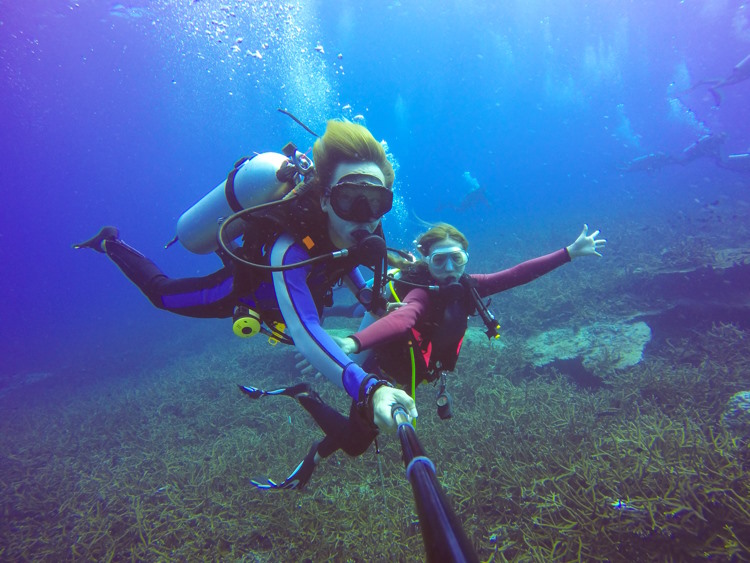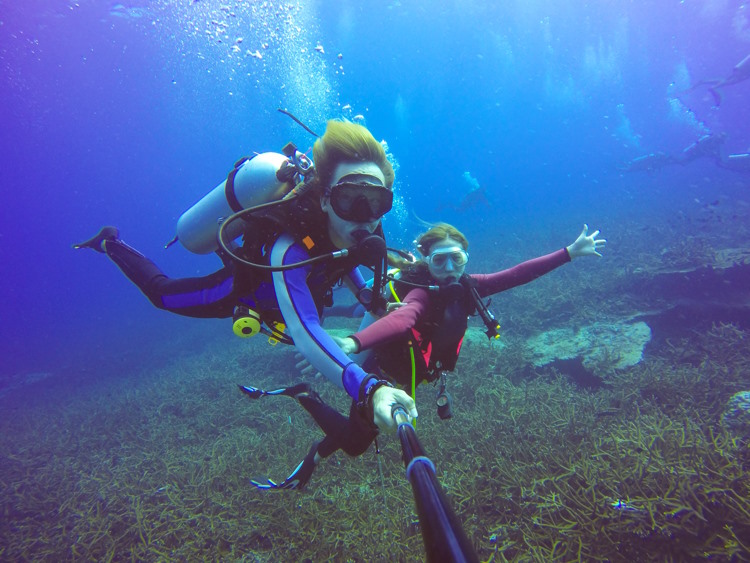Scuba diving is an exciting and rewarding activity that allows you to explore the underwater world and witness the beauty of marine life. However, scuba diving also requires a certain level of knowledge and skill to ensure safety and enjoyment. In this article, we will guide you through the basics of scuba diving and teach you how to master the techniques needed to become an expert diver.
Understanding the Basics
Before you can start scuba diving, it’s important to understand the physics and physiology behind it. Scuba diving involves breathing compressed air underwater, which means you are exposed to a different environment than on land. The deeper you go, the more pressure you will experience, which can cause various physiological effects on your body.
To ensure your safety, it’s important to learn about the equipment and gear needed for scuba diving. This includes a wetsuit, fins, a mask, and a regulator, which controls the air flow from the tank to your mouth. You should also learn about the safety guidelines and precautions for scuba diving, such as checking your gear before each dive, diving with a buddy, and knowing how to signal for help if necessary.
Learning the Techniques
Once you have a basic understanding of scuba diving, you can start learning the techniques needed to become a skilled diver. These techniques include descending and ascending, equalizing pressure, controlling buoyancy, and underwater communication.
Descending and ascending involves controlling your buoyancy and adjusting your ear pressure as you move up and down in the water. To descend, you should release air from your buoyancy control device (BCD) and use your fins to move downwards. To ascend, you should add air to your BCD and use your fins to move upwards. It’s important to equalize your ear pressure by swallowing, yawning, or using the Valsalva maneuver to prevent ear pain or injury.
Controlling buoyancy is crucial for maintaining your position in the water and conserving energy. You can control your buoyancy by adding or releasing air from your BCD or adjusting your weight system. Underwater communication is essential for diving with a buddy and signaling for help if necessary. You should learn the basic hand signals and practice them with your dive partner before each dive.
Advancing Your Skills
Once you have mastered the basic techniques, you can start advancing your skills as a scuba diver. This includes learning more advanced techniques such as night diving, deep diving, wreck diving, and navigation. These techniques require more specialized training and experience, but can add to the excitement and enjoyment of scuba diving.
Night diving involves diving at night using specialized equipment such as dive lights to explore the underwater world in a different light. Deep diving involves diving to depths beyond the recreational limit of 40 meters and requires special training and equipment. Wreck diving involves exploring sunken ships and other underwater structures, and navigation involves using a compass and other tools to navigate underwater.
Common Mistakes and How to Avoid Them
Even experienced divers can make mistakes that can compromise their safety or enjoyment. One common mistake is not checking your gear before each dive, which can result in equipment failure or malfunction. Another mistake is not monitoring your air supply, which can lead to running out of air or ascending too quickly. It’s important to always follow the safety guidelines and precautions and to dive within your level of training and experience.

Frequently Asked Questions
Here are some frequently asked questions about scuba diving:
How do I choose the right scuba diving equipment?
Choosing the right scuba diving equipment depends on your personal preference, budget, and diving needs. It’s important to research and compare different brands and models before making a purchase. You should also consider factors such as fit, comfort, and durability.
Can anyone learn how to scuba dive?
While anyone can learn how to scuba dive, it’s important to have a certain level of physical fitness and good health. You should also be comfortable in the water and have basic swimming skills. Before starting your scuba diving training, you may be required to undergo a medical examination to ensure you are fit to dive.
Is scuba diving dangerous?
Scuba diving can be dangerous if proper safety guidelines and precautions are not followed. However, with proper training, equipment, and experience, scuba diving can be a safe and enjoyable activity. It’s important to always dive within your level of training and experience and to never exceed the limits of your equipment or personal abilities.
How long does it take to become a certified scuba diver?
The length of time it takes to become a certified scuba diver varies depending on the course and training program. Most entry-level scuba diving courses take between 2-4 days to complete, while more advanced courses can take several weeks or months.
Can I dive if I wear glasses or contact lenses?
Yes, you can still dive if you wear glasses or contact lenses. However, you will need to wear a special diving mask that can accommodate your corrective lenses or consider getting corrective surgery to eliminate the need for glasses or contact lenses.
Conclusion
Scuba diving is a thrilling and rewarding activity that allows you to explore the underwater world and witness the beauty of marine life. By understanding the basics, learning the techniques, advancing your skills, and avoiding common mistakes, you can master the art of scuba diving and enjoy a lifetime of underwater adventures. Just remember to always prioritize safety and follow the guidelines and precautions for a safe and enjoyable diving experience.
